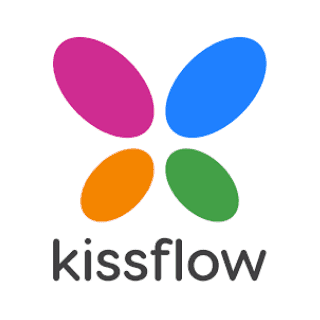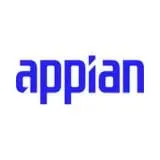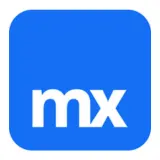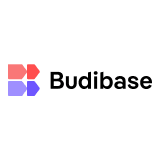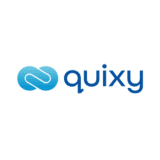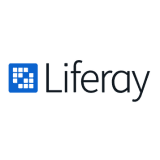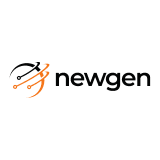- Free Version: Available for teams of up to 10
- Pricing: Premium plan $24/month (with a free 30-day trial period)
- Platforms supported: Available on mobile app (iOS and Android) or a web-based software
Why use SafetyCulture?
Known for its versatility, scalability, and offline mobile capabilities, cloud-based SafetyCulture excels as a digital transformation platform, especially for large enterprises moving into Industry 4.0. Its biggest strength lies in its integrations, seamlessly connecting with hardware, applications, and the organization’s current system. Built-in communication tools foster cross-functional collaboration. SafetyCulture also has an extensive library of digital checklists and templates, enabling organizations to accomplish a wide array of operational and administrative tasks. With this all-in-one platform, users can conduct site safety checks, review 360-degree feedback, prepare for standards certifications, report incidents, and analyze performance metrics with a digital device, even when offline.
Features:
- Enable the seamless exchange of data, enhancing the efficiency and effectiveness of digital transformation efforts by integrating the platform with the company’s system, IoT devices, and other hardware.
- Maintain and secure a centralized data repository serving as a single source of truth for asset (equipment) information, standard operating procedures, project details, and even employee-related documents.
- Empower stakeholders to identify areas for optimization, mitigate risks, and capitalize on opportunities for growth by generating critical reports and reviewing them with built-in analytics.
- Eradicate paper-based workflows like inspections and capture accurate data at the point of execution and specific locations with digital checklists with QR codes.
- Respond to safety incidents, handle product anomalies, and proactively mitigate risks as soon as these occur with the help of communication tools.
Why use Kissflow?
Primarily a business process management (BPM) platform, Kissflow’s capabilities to automate processes make it one of the most effective software solutions for digital transformations. Used across industries, it improves overall productivity by facilitating seamless communication, providing real-time insights into workflow performance, and standardizing processes for compliance.
Features:
- Drag-and-drop Interface for Custom Workflows
- Integrations (Google Drive, Salesforce, and Slack)
- Forms and Document Management
- Free Version: None
- Pricing: Starts at $1,500 per month (free trial and demo may be requested)
- Platforms supported: Web, iOS, Android
Why use Anypoint Platform?
Designed as an integration platform, Mulesoft’s Anypoint Platform helps enterprises in various sectors develop and deploy their digital architecture so that their operational teams can focus on strategic initiatives. With their extensive data mapping, companies can make the shift or build from legacy systems with the help of AI and other new technology.
Features:
- Integrations Search
- Process Automation
- AI-Powered System
- Free Version: None
- Pricing: Contact the MuleSoft sales team for more information (with a free 30-day trial license)
- Platforms supported: Web, On-Premise
Why use Appian?
A low-code application development solution, Appian is a great tool for companies that aim to transition to complete automation and digitization. With AI-powered decision management capabilities, integrations with third-party systems, and programmable workflows, users can adapt to the demands of digital transformation, evolve with the changing business landscape, and continuously drive productivity.
Features:
- Business Process Automation and Optimization
- Process Mining (Bottlenecks Identification)
- Integrated Data Fabric
- Free Version: None
- Pricing: Starts at $75 per feature per month (with a free trial)
- Platforms supported: Web, On-premise, iOS, Android
Why use Mendix?
Another application development platform that does not require advanced coding, Mendix helps companies in the banking, healthcare, and manufacturing sectors develop and deploy applications that automate operational and administrative workflows. With this full-featured software, organizations can drive transformation and boost productivity to reach business goals.
Features:
- Collaborative Development
- Enhanced AI and ML
- Universal Data Access
- Free Version: Yes. However, this comes with limited functionalities.
- Pricing: Starts at €52.50 (≈ $57) per month (free trial available upon sign-up)
- Platforms supported: Web, On-premise, Mobile
Why use Choreo?
A platform designed for integrations and API management, Choreo is perfect for large organizations in telecommunications, banking, and government. Its main function—streamlining the integration of disparate systems and applications—is a foundation for any digital transformation. With this software solution handling the complexities of new technology, companies can focus on more crucial operational tasks.
Features:
- API Management Tools and Integrations
- CIAM (Customer Identity and Access Management)
- Workforce IAM
- Free Version: Yes, available for the first 5 components.
- Pricing: Starts at $150 per component per month (free trial provided upon registration)
- Platforms supported: Web, On-premise
Why use Budibase?
Companies looking for a user-friendly, low-code platform for developing custom applications should consider Budibase. Perfect for small to medium-sized businesses, this enables the quick creation of prototypes that support customization and extensibility. Best of all, this can be scaled as the business grows, accommodating increasing user demands in the evolving business landscape.
Features:
- Drag-and-Drop GUI
- Data Management Tools (SQL, REST API, etc.)
- Process Automation
- Free Version: Yes. This is made for small teams, offering unlimited apps and workflows.
- Pricing: Premium plan costs $50 per app creator per month + $5 per app user per month (free trial available upon registration)
- Platforms supported: Web, On-premise
Why use Quixy?
Enterprises operating in healthcare, education, and finance utilize this no-code application development solution to make the necessary digital transformations. With its comprehensive features, Quixy empowers businesses to build and customize applications, streamlining processes, facilitating data-driven decision-making, and reducing their reliance on expensive IT solutions.
Features:
- Drag-and-Drop Interface Builder
- Process Modeling and Builder
- Ready-to-Use Templates and Components
- Free Version: None
- Pricing: Starts at $20 per user per month, for up to 20 users, billed annually (schedule a one-on-one demo to get the free trial)
- Platforms supported: Web, iOS, Android
Why use Liferay?
This digital experience platform (DXP) is a must-have for companies that aim to develop and deploy custom applications to streamline operational and administrative workflows. With Liferay’s numerous features, organizations can successfully expand their digital initiatives, ensuring flexibility and adaptability in a dynamic business environment.
Features:
- CMS (Content Management)
- User (Supplier, Customer, Employee) Experiences)
- AI-Powered Recommendations
- Free Version: None
- Pricing: Contact the Liferay sales team for more information (with a demo and 30-day free trial)
- Platforms supported: Web
Why use NewgenONE?
Considered one of the best digital transformation platforms today, NewgenONE provides an extensive range of automation technologies that help companies handle complicated workflows With this comprehensive software solution, users can efficiently develop an ecosystem that offers a consistent, personalized experience by integrating the current systems, new apps, and various hardware.
Features:
- Intelligent Process Automation
- Contextual Content Services
- Omnichannel Customer Engagement
- Free Version: None
- Pricing: Contact the NewgenONE sales team for more information
- Platforms supported: Web, On-premise iOS, Android
What is a Digital Transformation Platform?
A digital transformation platform is an all-inclusive software solution that streamlines the various aspects of an organization’s operations, strategies, and services through digitization. This fully integrated ecosystem leverages cloud computing, data analytics, artificial intelligence (AI), Internet of Things (IoT), and process automation, helping companies to adapt to the rapidly evolving business landscape.
Importance
More and more companies are investing in digitization. According to statistics, almost 75% of global organizations have engaged in some form of digital initiative, spending trillions of dollars in the process. The shift from analog or manual to digital is not easy for various reasons. Utilizing digital transformation software for a variety of business processes can help:
- Enhance Organizational Capabilities for Efficiency – Companies about to undertake digitization should systematically review their current workflows first. This can be incredibly stressful when conducted manually. With a software solution, operations managers and other relevant personnel can capture accurate data from disparate sources and use analytics tools to better prioritize, develop new plans, and allocate adequate resources.
- Strengthen Cross-Functional Collaboration – The software solution acts as a centralized hub for managing digital initiatives. By providing everyone in the team access to the platform, information silos are broken down. Since members have the information and technologies required for the transition, they can work together to ensure success.
- Boost Agility and Innovation – Real-time monitoring and reporting tools, advanced analytics, robust integrations, and extensive communication capabilities do not just optimize processes. These also facilitate quick adaptation to market changes, unanticipated incidents, and other challenges for the company.
Key Features
Practically all companies across sectors, from banking and finance to transportation and logistics, require some form of digital transformation. Some software solutions have two or three tools that handle specific issues, but only a few are comprehensive enough to manage a complete transition. Look for these essentials when choosing a suitable platform:
- Integrations (with IoT, hardware, and other systems)
- Digital Templates
- Workflow Automation
- AI and Machine Learning
- Asset Management
- Collaborative Workspace
- Analytics
- Reporting
- Data Security
- Customer Journey Mapping
- Mobile Accessibility with Offline Capabilities
Selecting the Right Digital Transformation Platform
Company executives, digital strategists, IT teams, and operations managers can benefit from any of the platforms detailed. Before you make your final choice, take another look at the digital transformation solutions in the summary below:
| Digital Transformation Platform | Free Version | Paid Plan | Mobile App |
| SafetyCulture | Yes | $24/user/month* | Yes |
| Kissflow | No | $1,500/month | Yes |
| Anypoint Platform | No | Contact for pricing | No |
| Appian | No | $75/feature/month | Yes |
| Mendix | Yes | €52.50 (≈$57) /month | Yes |
| Choreo | Yes | $150/component/month | No |
| Budibase | Yes | $50/app creator/month + $5/app user/month | No |
| Quixy | No | $20/user/month* | Yes |
| Liferay | No | Contact for pricing | No |
| NewgenONE | No | Contact for pricing | Yes |
* billed annually

